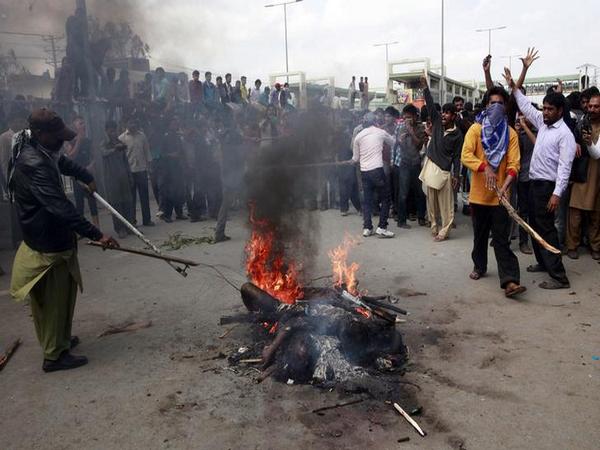Islamabad: Accusing the Pakistani establishment of “embracing” extremism and terrorism as an inevitability, and training their citizens to adapt to a new hostile climate as any brave jawan would, an article written by Faraz Talat in the Dawn says the recent attack on Quetta has provided ample opportunity to showcase the culture, where scars are worn with pride, and few questions are asked about the political policies that enable these injuries – “Why would we? It’s an honour to have them.”
Stating that a nation is bound to run short on tears when terrorist attacks occur, more or less, as a continuum, and not sporadic moments of horror, Talat’s article published under the heading ‘The problem with Pakistan’s ‘martyrdom’ culture’, says, “We portray our “wattan ki maaen”, or nation’s mothers, as iron-women stripped of maternal instinct, taking great pride in raising lambs for slaughter in the interest of some vaguely-defined national agenda; rather than ordinary human beings, like us, who strive to raise well-fed children destined to outlive their parents.”
“We, the “remote misses” of terrorist attacks in Pakistan, may never be able to comprehend the emotions of those who’ve had their loved ones inexplicably ripped away from them. And we make up for our ignorance, by projecting our own sense of national pride and invincibility upon the bereaved,” says the writer.
“This is important, because if we don’t assuage the nation’s outrage with salutes and glorious titles, we may be at risk of musing out loud about how our appointed protectors – those we’ve vested such high hopes in – have failed us. Widows and orphans make sense of their loved ones’ senseless departures, by permitting themselves to believe that these deaths, somehow, served a bigger purpose. And we’re happy to encourage this ideation, because the alternative provokes inconsolable anger and protest,” he adds.
Talat further says, “The result is a state-sponsored shahadat culture; a new brand of opium for the masses.”
Taking strong exception to the spread of military culture in Pakistan, the writer says, “From the latest tribute by Coke Studio to beloved classics on the radio, we’re once more beset by the same old dirges passed off as national songs. And this time, this military language doesn’t apply to soldiers patrolling our borders; it applies to ordinary civilians enjoying an evening out in the park, and little children waiting for recess at school. We’re all foot soldiers now; and we’re being taught to steel ourselves accordingly.”
Stating that would it make him less of a patriot to admit that he’d rather live for this country, than die for it, he says: “We’re not jawans. We’re civilians in grief. We’d rather be assured that we’re safe, than be told that we’re brave. We’d rather celebrate our longevity, than our ability to tolerate the stench of death all around us. There’s glory in life, and there’s honour in its preservation.” (ANI)

